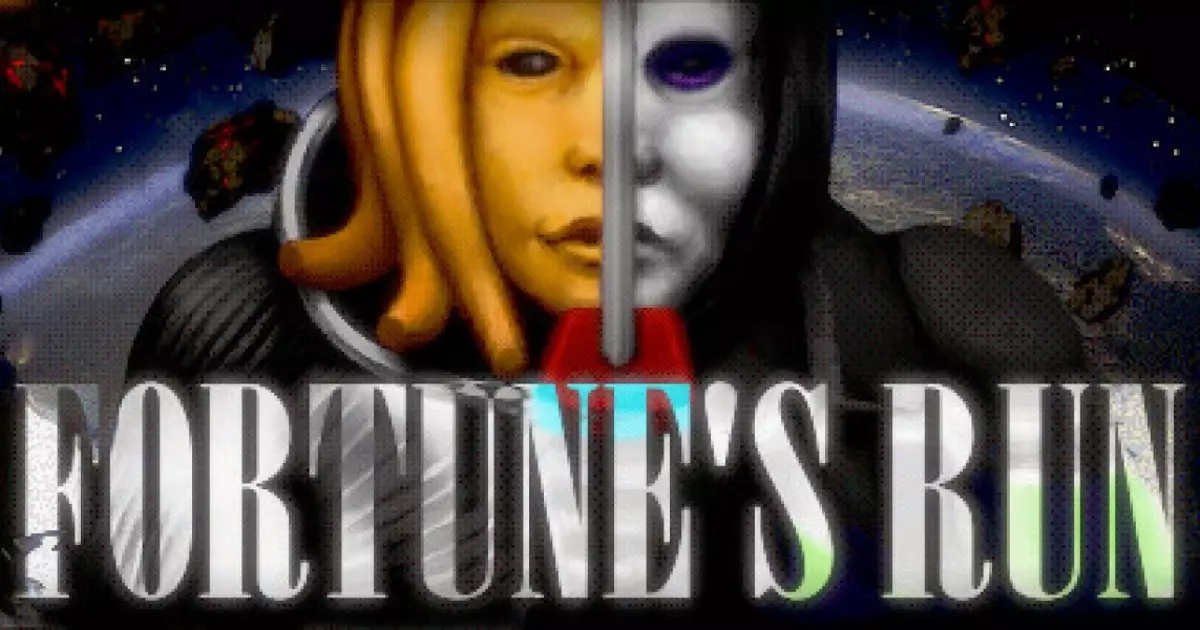The gaming industry is frequently unpredictable, with highs and lows that can affect developers and gamers alike. The abrupt announcement from the sole creator of the immersive sim-shooter *Fortune’s Run* proves to be a potent reminder of this reality. Lead developer Dizzie is facing a three-year sentence due to a violent crime, leading to the game’s temporary hiatus. This article delves into the circumstances surrounding this setback, examining not only the implications for the game but also the broader narrative it evokes about the complexities of life, creativity, and consequences.
Dizzie’s journey into game development has been far from smooth. His Steam post reveals that he has endured a tumultuous life prior to immersing himself in creating video games. This revelation poses a sharp contradiction to the idyllic notion of indie game development being a fulfilling and liberating endeavor. Instead, we see a stark depiction of struggle and consequence. The legal battles stretching over five years paint a picture of underlying issues that have finally come to a head. The indictment raises questions about how a developer’s personal life can collide with their creative aspirations, often with devastating results.
Interestingly, Dizzie attempts to clarify the timing of his legal troubles in relation to his partnership with Arachne, the other developer who managed quality assurance for *Fortune’s Run*. Arachne’s departure from the industry followed a troubling surgical procedure but isn’t said to relate to Dizzie’s predicament. This nuanced distinction highlights the complicated interpersonal dynamics within small teams where the burden of personal choices can intertwine with professional projects. It suggests that even in creative industries, where collaboration fosters innovation, the ripple effects of individual life events can dramatically shift trajectories.
Even as discussions of consequences loom large, they do not address the immediate impact on *Fortune’s Run*. With Dizzie set to serve a prison sentence and Arachne no longer part of the project, the game’s future remains uncertain. This serves as a cautionary tale about the fragility of indie projects built on the passion and dedication of a small group. Developers often take immense personal risks, pouring their lives into a project they believe in, but such devotion can lead to sudden professional derailments.
Dizzie’s acknowledgment that he “managed to complete all of the work in time so that it could be released before I’m sent away” reflects both a commendable commitment to his project and a profound desperation to leave it in a semblance of completion. Nevertheless, this singular focus on immediate output belies the reality that active game development often requires on-going collaboration and feedback, something that is now severely hampered in *Fortune’s Run*.
Despite the disheartening circumstances, there is a glimmer of hope in Dizzie’s assurances regarding the future of *Fortune’s Run*. He points out that previous sales have provided sufficient funds that may allow him to resume his work after his sentence finishes. The notion that a passion project might still be viable post-incarceration introduces an element of resilience into an otherwise bleak narrative. It reveals the indomitable spirit often seen in the gaming community: the idea that life’s setbacks do not have to mark an end, but rather, a potential new beginning.
Moreover, Dizzie’s claim that he has been working on “stubs and prototypes of the missing levels” reflects a commitment to his craft. The passion he expresses for game development is palpable, hinting that, regardless of the dire circumstances, his love for creating games will not wane. This drives home an essential lesson for anyone engaged in creative endeavors: the passion behind a project can often fuel a return to form, even in the wake of the most significant challenges.
The abrupt pause of *Fortune’s Run* encapsulates a broader, poignant theme regarding the intersection of personal lives and creative work. As developers face their own demons, the projects they carefully cultivate can be irrevocably altered. The hope remains that, upon completing his sentence, Dizzie will emerge with fresh perspectives and renewed vigor for *Fortune’s Run*. Until then, this story serves as a dual cautionary tale and a source of inspiration for aspiring developers everywhere, reminding them of the intertwining paths of life and art.

